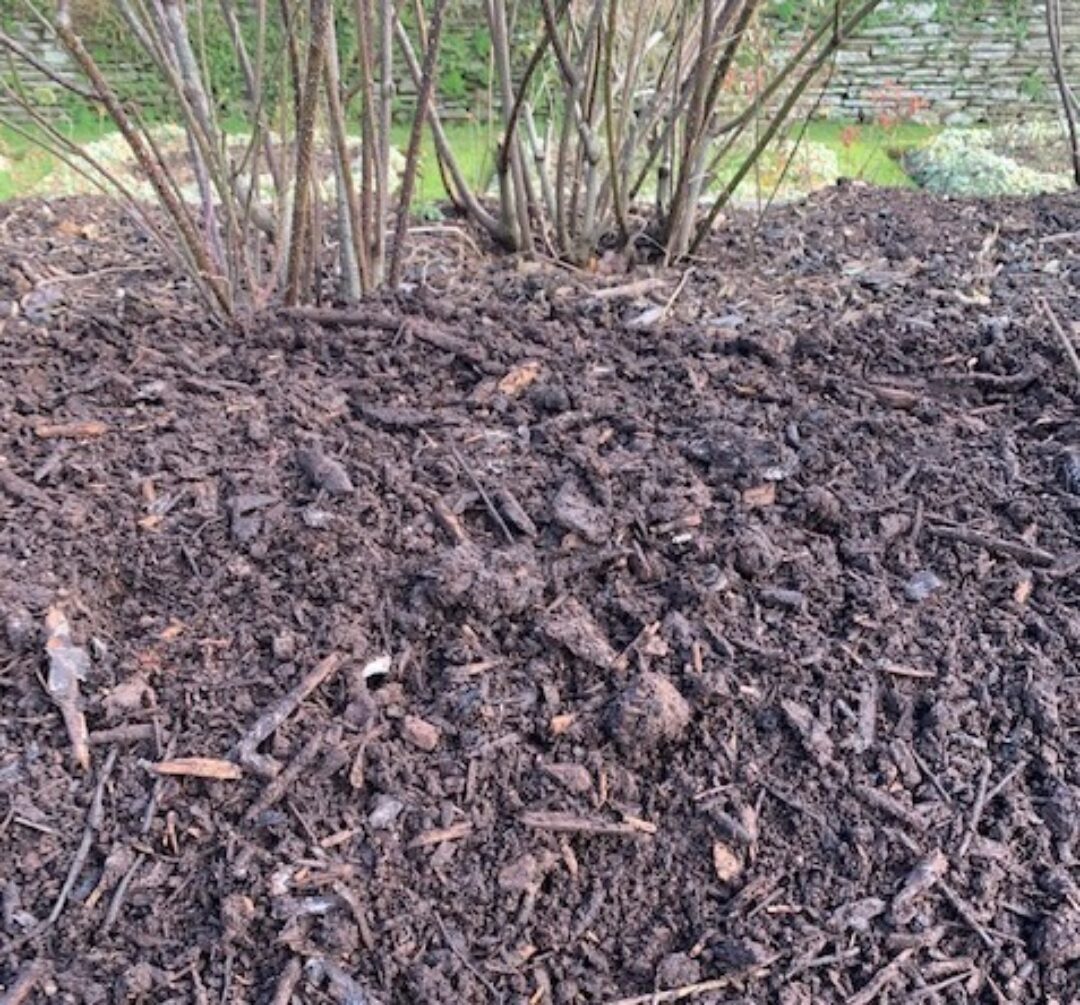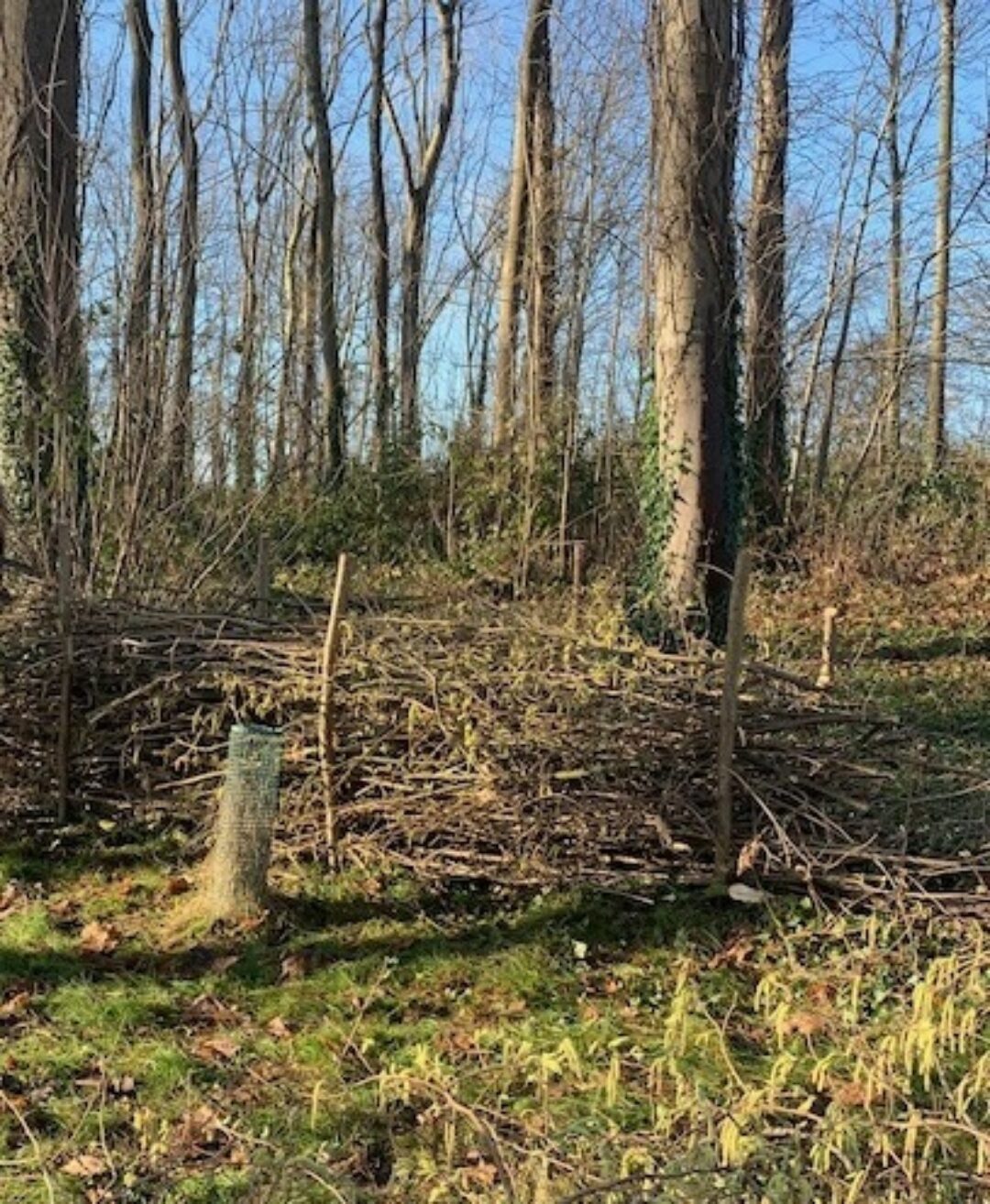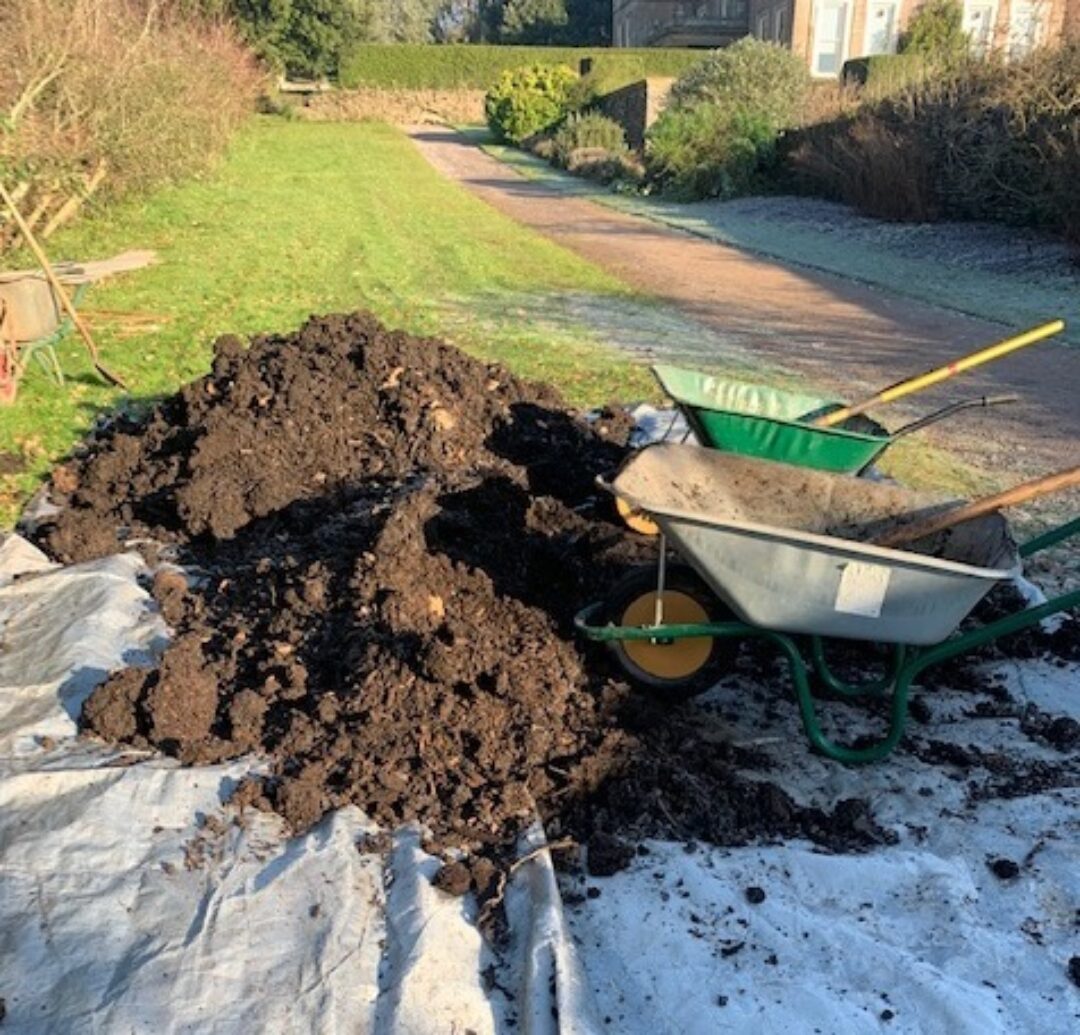Notice
Please be aware that Hestercombe will be closed on Christmas Day and Boxing Day, but will be open daily throughout the rest of the Christmas holidays.
Our Head Gardener, Claire Greenslade, provides an update on what our hardworking team of gardeners have been up to at Hestercombe over the winter months.
Please be aware that Hestercombe will be closed on Christmas Day and Boxing Day, but will be open daily throughout the rest of the Christmas holidays.
People always wonder what the team of gardeners do over the winter, but let me reassure you, there is no let up!
We have pruned the orchard, the wall trained figs, wisteria and vines, plus all the roses. The winter is the time for carrying out any tree work before the birds start to nest so we have been busy in the wider landscape dealing with any ash die back. In the Landscape Gardens, we have been having a spring clean, exposing rock faces, clearing the bricks on the leat path, and checking on the essential views across the estate. It’s busy, it’s always busy! Luckily a lot of the jobs are more physical and help us to keep warm through the winter months.
Over the last couple of months we have been making good use of last year's compost, as well as starting to make next years. We really noticed in the long hot summer of 2022 that in the areas of garden that we had mulched the previous winter, the plants were dealing with drought significantly better. With that in mind we have chosen carefully where to use our precious homemade compost. Unfortunately we never quite make enough to cover the whole garden. Our compost is made from garden waste, woodchip, shredded paper from the offices, grass clippings and food waste. We are lucky enough to have 5 huge purpose built compost bays and throughout the year we turn the waste from one bay to another using the loader on the tractor. Turning the heaps adds heat and speeds up the process. Once the compost has been turned into the last bay, it is covered with a tarpaulin. Not only does this keep weed seed from dropping onto it but it also heats up the heap and helps with the final decomposition. Last year in the heat we were trying to be quite economical with the watering. We only have mains water so we had to try and keep the costs down and not waste any water. We were surprised how much our asters struggled so this year they have been given a good mulch. Not only will this feed the soil but it will help trap in moisture and hopefully give them a better start.

We have been looking at how we deal with waste in other parts of the garden. When we cut the laurel we have to leave it in piles until the leaves have turned brown. The leaves release cyanide so if we chip or burn laurel when it is too fresh we all get headaches!
We hire a tracked chipper a couple of times per year to chip this waste wood. This can then be used as a decorative mulch in the car park beds and the back of the orangery to help suppress weeds. The rest of the chip is added to the compost heaps. You may have heard Monty Don talk about compost being made of brown and green- the chip is the brown, the carbon element, which is mixed with the garden waste, the green, the nitrogen element. The end result is some great compost.

In other parts of the estate we have been building dead hedges. We used to burn all the brash from felled or fallen trees but it didn’t feel very environmentally friendly. Now we coppice hazel from the estate to make posts. These are banged into the ground in a long double row. The brash is then cut up and pushed down in between the hazel poles to make a dead hedge. Over time this dead hedge will have grass and brambles growing through it and will almost disappear into the woodland. Dead hedges make a brilliant wildlife habitat for all the woodland animals, and over time it will decompose back to the soil, or can be added to year after year. In other parts of the woodland we leave log piles for nature and we leave standing deadwood. Standing deadwood is just dead trees that we have made safe but left in the ground so that they become a really good habitat for all sorts of insects and beetles, and can also make a nice home for an owl or a woodpecker. I know the volunteers desperately miss cooking their sausages on the fire, but these small steps all help provide much better worlds for wildlife and the environment.
These steps are just some of the ways that the garden team are constantly evolving and rethinking traditional methods of horticulture and countryside management to make a better future. It feels really positive to take so much of what we learnt through observation during the lockdown and enable a change of plan that will benefit wildlife. We have to keep the balance right between protecting and enhancing historic gardens whilst making more room for wildlife.
Keep your eyes peeled this summer for more ‘no mow May’, maybe we will slide this through to ‘jack it off June’ and ‘Just leave it long July’!
